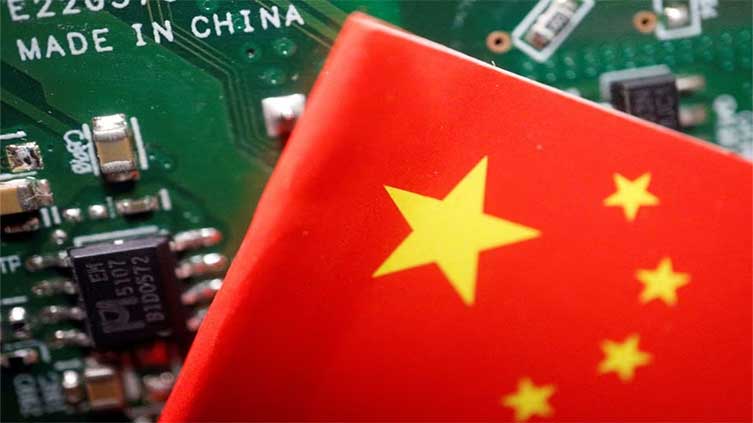China tackles chip talent shortage with new courses, higher pay

Technology
China tackles chip talent shortage with new courses, higher pay
SHANGHAI (Web Desk) - China is ramping up efforts to develop home-grown semiconductor talent as it seeks to rapidly fill a shortage of expertise that has been made worse by U.S. efforts to limit Beijing's access to advanced chip technology.
Enrolments for undergraduate and post-graduate courses have surged over the past five years thanks to new funds for top universities as well as a boom in smaller private schools focused on shorter-term instruction.
Master's enrolments to study chip engineering at 10 top universities nearly doubled between 2018 and 2022 to a total of 2,893 students, according to university data.
Some graduates with degrees in other subjects are being lured into the growth industry at a time when entry-level salaries have doubled.
China faces a shortage of an estimated 200,000 industry workers this year, according to a white paper jointly published by the China Center for Information Industry Development, a government think tank, and the China Semiconductor Industry Association, a trade group.
Closing that gap is growing even more critical as the U.S. looks to cut China off from global supply chains, citing fears that any advanced chips it makes will be ultimately used by China's military.
However, students and experts were of opinion that China's emerging chips curriculums do not provide the kinds of hands-on industry experience offered by more advanced schools in Taiwan and the United States.
A 2022 survey from Chinese research firm ICWise found more than 60% of students studying chip engineering in China graduate with no internship experience in the field.
Chinese universities tend to reward professors across all fields for publishing papers rather than teaching up-to-date methodology that is useful in a company laboratory or chip manufacturing plant, according to recent graduates and academics.
In Taiwan, top chipmaker Taiwan Semiconductor Manufacturing Co (TSMC) has established research centres at four universities.
"Taiwan's school-enterprise collaboration is very good. A student might have three years of postgraduate study but will only be in class for a half a year," said Wang Ziyang, a recent graduate who blogs about chip hiring trends on Linkedin-esque social network Maimai, where he has over 90,000 followers.
There are some steps in this direction in China. Its largest chip foundry, Semiconductor Manufacturing International Corp (SMIC) (0981.HK), in 2021 announced a jointly-established School of Integrated Circuits at Shenzhen Technology University

